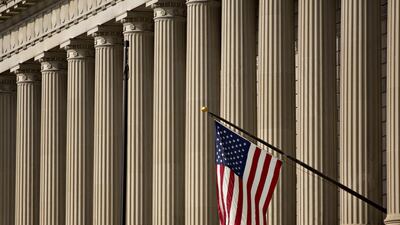Twenty-five years ago, I served as a senior US trade official in the government of then president Bill Clinton. I learned a great deal in that job but one thing I knew from the start, even as a neophyte official, was that a commitment to promoting free trade was in our blood in the United States, as American as apple pie (possibly made, in the spirit of free trade, from imported apples.)
I knew that had been so for 60 years before I had arrived on the scene. In the wake of the disastrous protectionist policies of the early 1930s in the United States, the secretary of state appointed by president Franklin Delano Roosevelt, a man named Cordell Hull, made promoting free trade a core principle of US international affairs, both because he felt it was economically good for the country and because he felt it promoted stronger ties with our trading partners worldwide.
In the wake of the Second World War, the international community embraced the ideals of free trade when they signed the general agreement on tariffs and trade (Gatt) in Geneva, Switzerland in October 1947.
That was 71 years ago. Since then, despite the inevitable ups and downs associated with trade negotiations, the core direction of US trade policy and of the international system we sought to influence was towards more trade liberalisation.
When I was in the government, this movement manifested itself in the creation of the World Trade Organisation, which will turn 25 next year, and the creation of the North American Free Trade Agreement (Nafta). From the establishment of the European Union to the trans-Pacific trade agreement, the overarching principle was that more open trade meant greater opportunity and growth for all.
It was far from a perfect system – but it has worked and the world economy has enjoyed unprecedented growth. And for every moment since the Gatt accord was signed and it became US policy, the US has been the richest and most powerful nation on earth.
But all that success and tradition apparently have not been enough to persuade Donald Trump.
Mr Trump and his team have taken it upon themselves to reverse more than eight decades of US trade policy. They began with pulling the US out of the Trans-Pacific Partnership. They then went on to demand the renegotiation of the Nafta accord and to threaten to pull the US out of the agreement.
They followed with a series of attacks ratcheting up pressure on America's number one trading partner, China. Now, in the past week, they have levied a series of steel and aluminum tariffs that have sent the US hurtling towards a trade war with many of the US's closest allies in Europe and North America. Proposed tariffs on imported cars are now also threatened like the steel and aluminum tariffs, under the dubious premise that there is a national security motivation for the actions.
This shocking policy reversal not only has markets worried, it is threatening the US’s most important international relationships.
In response to Mr Trump’s tariff announcement, European Commission president Jean-Claude Juncker said “This is a bad day for world trade.” He added, acidly: “Each time I think of Trump, I am lost.”
Punches were not pulled by anyone, even by the typically even-keeled, friendly Canadians. Canadian Prime Minister Justin Trudeau, acknowledging how close the two countries have been for 150 years, said: “This is not about the American people. We have to believe at some point their common sense will prevail. But we see no sign of that in this action today by the US administration.”
The Chinese government chided the US more indirectly, saying: “All countries, especially the major economies, should resolutely oppose all forms of trade and investment protection.”
Even members of the president’s own Republican Party, typically loathe to criticise him, were deeply uncomfortable with the move. Senator Ben Sasse bluntly labelled the move “dumb”. His primary concern was that it would weaken alliances on which US leadership and security have depended for 75 years (it is not an accident that the Gatt was born at the same time as Nato, the UN, the IMF and the World Bank; it was seen as a pillar of post-Second World War stability).
The shock of this policy reversal is compounded by the fact it comes simultaneously with other blows to America’s traditional alliances, such as tough talk by the president on Nato early in his term or unilaterally pulling out of the Iran nuclear deal and threatening sanctions against companies from allied countries that continue to seek to work with Iran.
In fact, as a result, there is only one country that seems to be an immediate winner from these policy reversals: Russia. Moscow has long sought to weaken the US Atlantic Alliance and undercut American global leadership. For them, this is a dream come true. Indeed, given the burden potential trade wars place on American workers, consumers, allies and alliances, the person most likely to cheer statements like Mr Trump’s recent comment that “trade wars are good” is Vladimir Putin.
In fact, while few investors expected or could have planned for these stunning developments, Mr Putin, by some estimates the world’s richest man, showed yet again what a savvy investor he was – as the effort his government made to help Mr Trump win the 2016 election has proven yet again to be, at least for him, if not for all the rest of us, one of the canniest investments any world leader has made in recent years.
David Rothkopf is CEO of The Rothkopf Group, a visiting scholar at the Carnegie Endowment for International Peace and author of The Great Questions of Tomorrow

